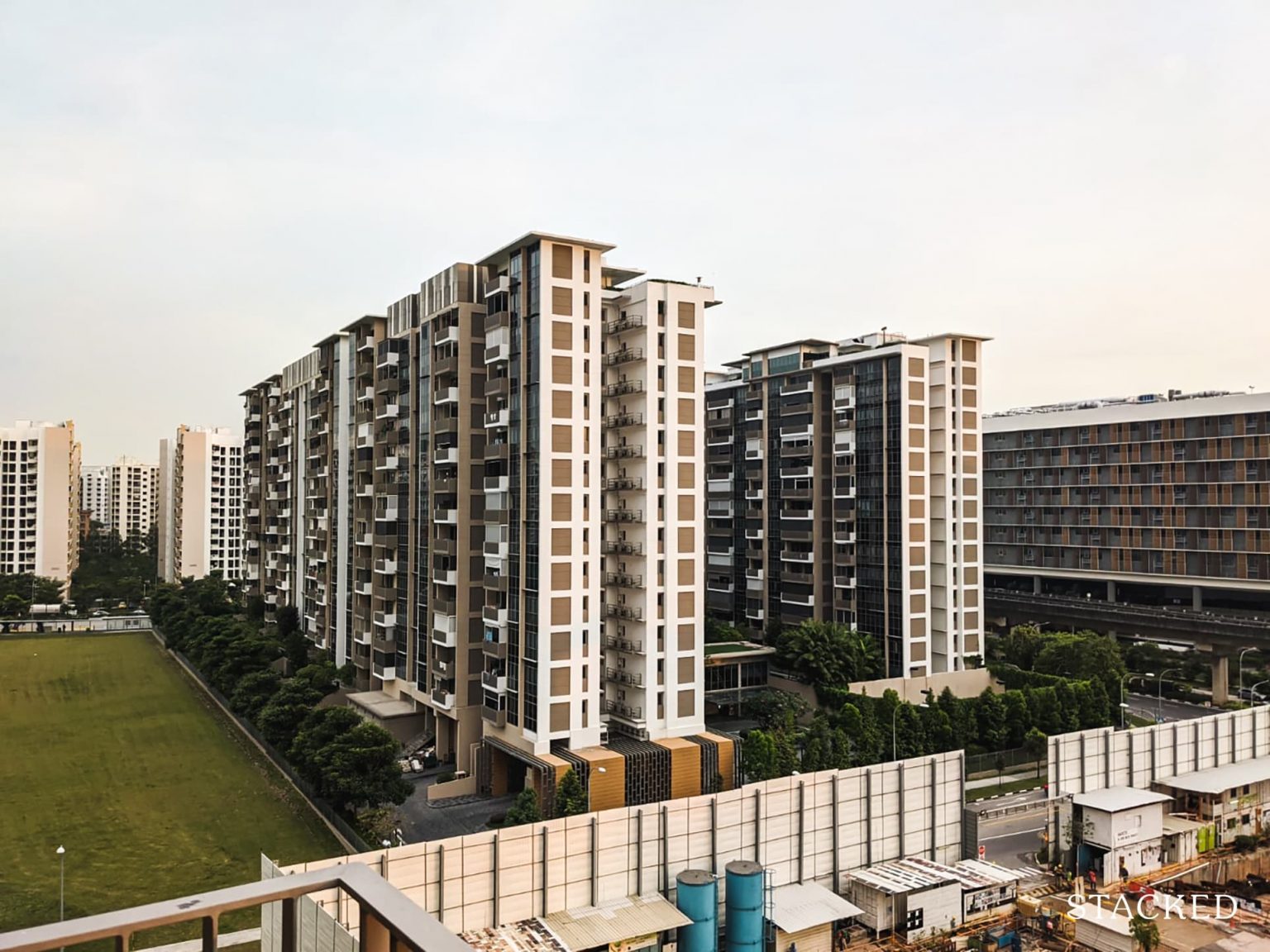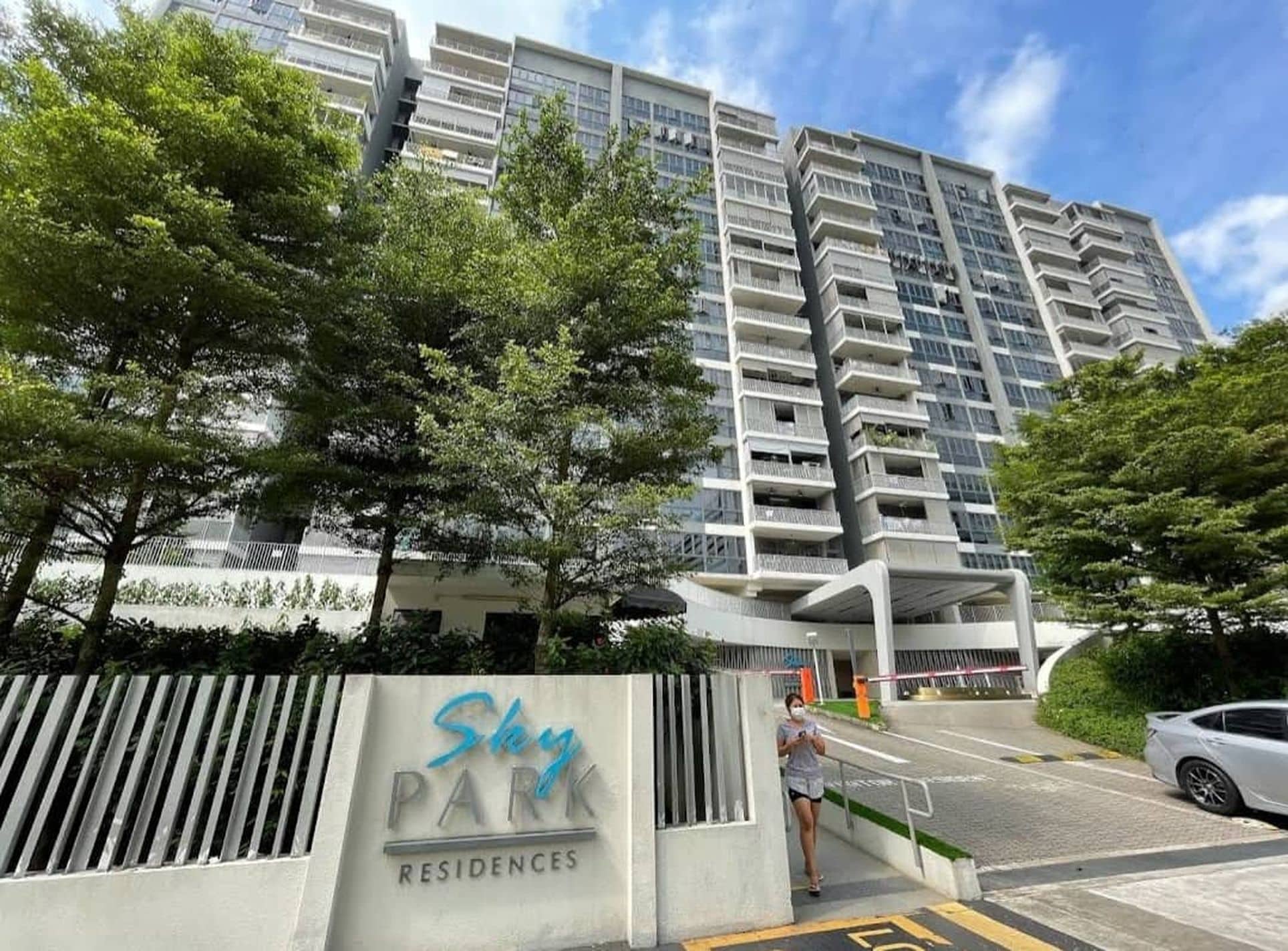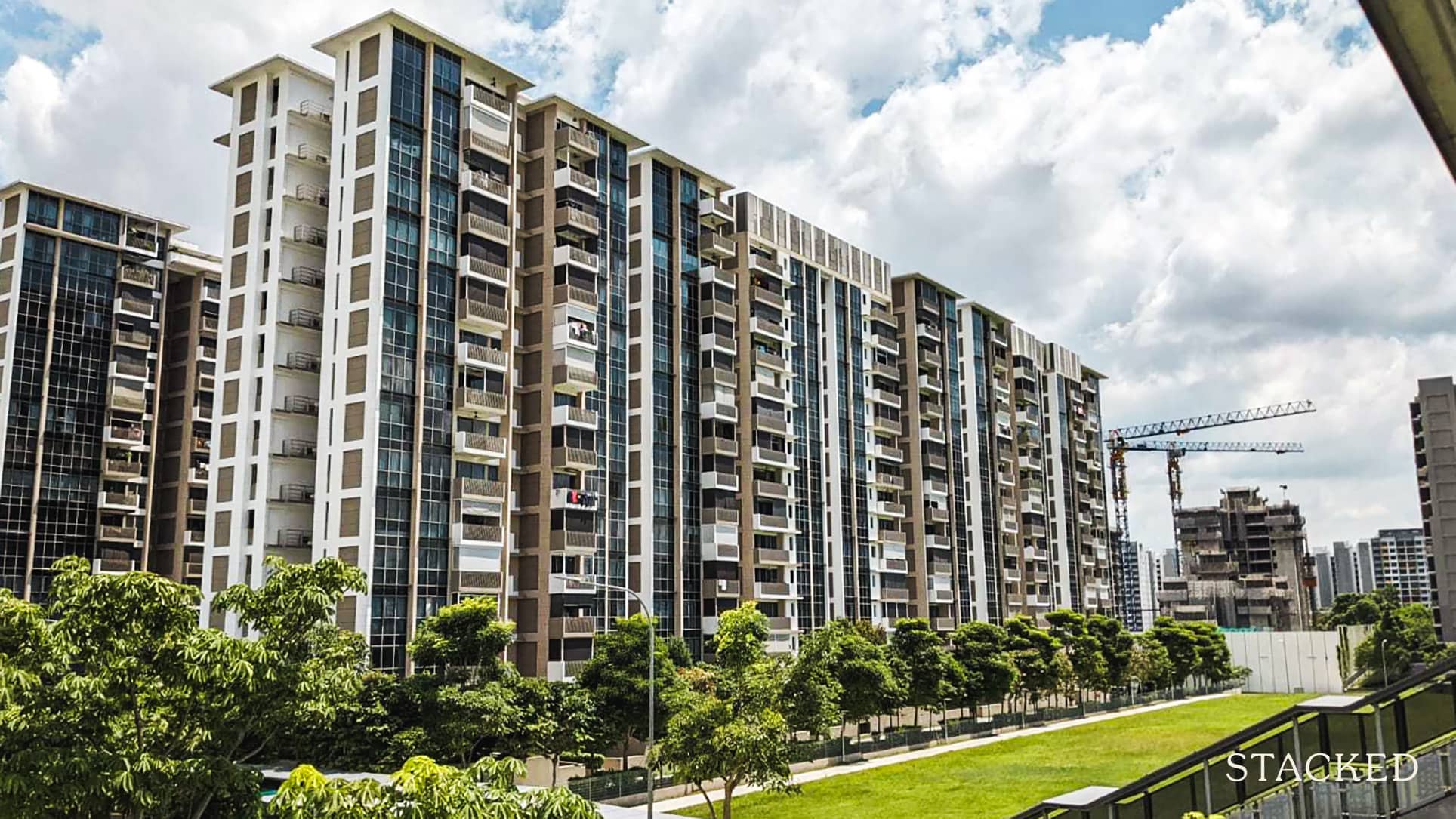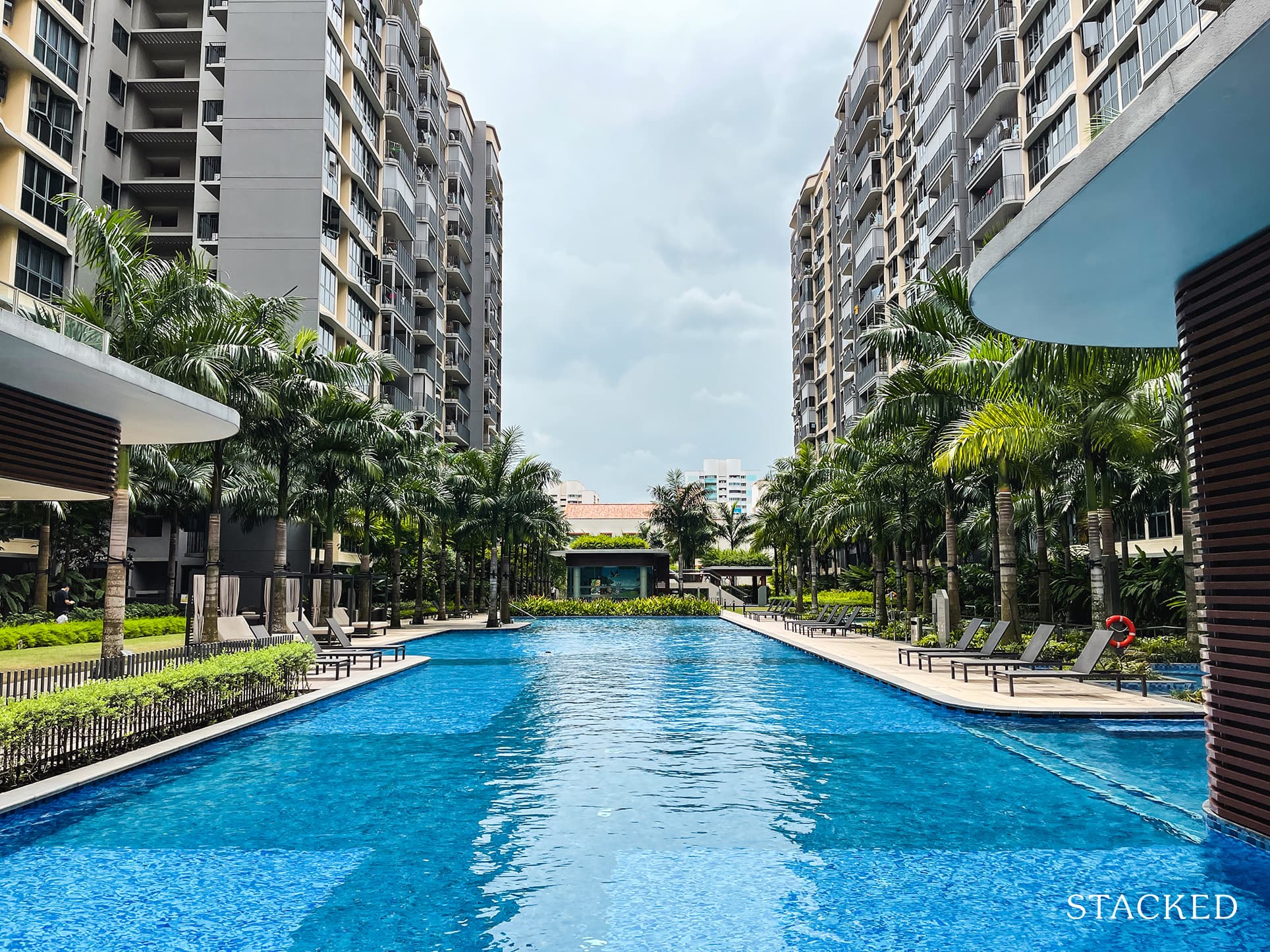Can Executive Condominiums Actually Be Unprofitable? 3 Interesting Points To Note From The Data
December 14, 2022

Last week we put out a list of the most profitable Executive Condominiums, that were sold right after the five-year MOP. Our plan was to put out a companion piece this week, on the least profitable ECs; and to be sure we have done that below. However, in compiling this list, we learned a lot of interesting details; and many of these may be important to note for those looking at purchasing an EC. Here’s what we found:
So many readers write in because they're unsure what to do next, and don't know who to trust.
If this sounds familiar, we offer structured 1-to-1 consultations where we walk through your finances, goals, and market options objectively.
No obligation. Just clarity.
Learn more here.
What are some of the least profitable EC transactions?
The following shows the least profitable transactions for those who sold right after the five-year MOP. To ensure it’s current enough to be relevant, we’ve isolated the list to ECs built and sold over the past decade. Here are some of the findings:
| Project Name | Sale Date | Transacted Price ($) | Buy Date | Buy Price | Quantum Profit | % Profit |
| Waterwoods | 22 Jun 2017 | $695,000 | 3/2/14 | $674,494 | $20,506 | 3.00% |
| Forestville* | 14 Dec 2017 | $771,877 | 26/12/13 | $743,040 | $28,837 | 3.90% |
| Skypark Residences | 15 Apr 2020 | $920,000 | 3/1/14 | $881,500 | $38,500 | 4.40% |
| The Vales | 18 Mar 2019 | $765,000 | 19/11/16 | $728,000 | $37,000 | 5.10% |
| Waterwoods | 28 Aug 2019 | $1,098,000 | 15/6/15 | $1,044,015 | $53,985 | 5.20% |
| The Amore | 7 Jan 2021 | $1,320,000 | 8/6/15 | $1,254,000 | $66,000 | 5.30% |
| The Amore | 25 Jan 2018 | $1,318,000 | 20/1/16 | $1,228,000 | $90,000 | 7.30% |
| The Amore | 10 May 2018 | $1,185,000 | 9/4/15 | $1,086,000 | $99,000 | 9.10% |
| The Amore | 21 Jan 2021 | $1,230,000 | 26/2/16 | $1,122,000 | $108,000 | 9.60% |
| Skypark Residences | 22 Jun 2018 | $940,000 | 2/3/15 | $855,000 | $85,000 | 9.90% |
| Bellewoods | 18 Dec 2020 | $949,000 | 19/12/14 | $862,000 | $87,000 | 10.10% |
| Westwood Residences | 15 Apr 2019 | $675,220 | 30/5/15 | $609,800 | $65,420 | 10.70% |
What we learned while compiling the list:
In general, there are strong positives for ECs; but there are many, less visible factors that can impact gains. If there’s one conclusion we can draw for certain, it’s that:
1. ECs over the past 10 years have almost never seen losses
Important note: we are not claiming that all ECs will never transact at a loss; only that there are no recorded losses among ECs which were launched and sold in the past 10 years. There may be losses among earlier ECs, or losing transactions that have gone unrecorded.
Even among the bottommost transactions we found, gains were still positive; none of the buyers lost money per se, they just didn’t make much. From the above, we can see the lowest gains by transactions are found at:
- Waterwoods (3%)
- Forestville (3.9%)
- Skypark Residences (4.4%)
- The Amore (5.3%)
Beyond this, gains are usually at around seven per cent or higher. This suggests ECs are one of the safer bets for risk-averse buyers. Ultimately, ECs are cheaper with more room to appreciate – they can come with a small CPF housing grant, and subsidies are built into the price.

(Although whether the appreciation has kept pace with the rising cost of living is another issue).
One of the realtors we asked also raised an interesting point:
“ECs are usually built in non-mature areas, where the cost of homes is lower. Over the period of construction, followed by the five-year MOP, the surrounding areas would have time to build up amenities like supermarkets, shopping centres, park connectors, and so on. By the time the EC is sold after MOP, there could be seven years of built-up amenities, so there are almost surely gains.”
In other words, it may simply be that EC buyers are not purchasing homes in mature areas where prices are already high, and have less room to appreciate.
The realtor added that flexibility for the second batch of buyers (they can move in right away, and face no MOP) helps to justify the price.
As an aside, there’s one more way ECs can reduce risk:
When you upgrade to an EC from an HDB flat, you don’t need to pay ABSD upfront. This means there’s no need to worry about ABSD remission.
With private properties, you need to sell your previous flat within six months, to claim ABSD remission. There are situations where deals fall through at the last minute (e.g., you find a buyer for your flat only on the final month, and they suddenly back out while surrendering the option).
More from Stacked
Tour An Old 1978 HDB Transformation: How A Couple Created A Minimalist Expansive Home
There’s one big question that every homeowner will face after buying a resale HDB flat - how many structural changes…
This is never a risk that upgraders face when buying ECs.

Property PicksAn EC Made $1.38m In Profits? 10 Most Profitable Executive Condos In The Past 10 Years
by Ryan J. Ong2. The most and least profitable units can be from the same project
The gains may not be reflective of the project as a whole, but rather of specific unit transactions. For example, consider Skypark Residences:
A transaction on 15th April 2020 saw a slim profit of $38,500, a 4.4 per cent gain. However, a unit in the same project, sold on 22nd June 2018, saw a profit of $85,000, or a gain of about 9.9 per cent. And our earlier piece on most profitable ECs in the past 10 years saw a 1,528 sq. ft. unit make $717,000 in profits in August 2022.
The reason for the slim profits is likely due to the Covid pandemic, which was at its height during April 2020. The circuit breaker was from 7th April to 1st June 2020, during which time property viewings were not allowed. This was still an uncertain time when many were fearful of what would happen to the property market.
As such, when looking at the gains, it’s important to cross-reference it with any major events of the time period – these include the introduction of new cooling measures, loan curbs, recessions, etc.
In light of 2022, for instance, high gains from ECs would have to be viewed in the light of a major housing supply crunch (unsold units are at their lowest number in around 15 years), so we would expect units sold at this time to outperform many others in the same project.
Simply put, the timing of the transaction – along with the specifics of the unit itself – can matter more than factors such as the maintenance of the overall project, the facilities, etc.
If you’re looking to buy a resale EC, do keep this in mind: lower transaction prices don’t always reflect something being wrong with the project.
3. The sale price of the first few units tends to “anchor” the price point
When buyers try to decide on a price, they often look at transaction history – but this is where five-year old ECs differ from private condos. ECs can’t be sold until after their MOP*, so there’s typically no price history to track.
In these circumstances, the first sellers tend to “anchor” the price. If a seller parts with their unit for an abnormally low price, for instance (perhaps they are selling to family, or are making an urgent sale), this can result in buyers using the low price as a guide point. Conversely, an excessively high price in the first few sales may ramp up the perceived value.
For this reason, the second batch of EC buyers needs to be extra cautious. The period right after MOP can see higher price volatility, compared to subsequent sales.
*HDB may sometimes allow for an early sale of an EC, but these are only under unique circumstances. But these transactions are few and far between, and may not be helpful in setting the price. Also, buying an EC within the MOP period will target a niche crowd, as these buyers will be limited by the MSR, rather than the TDSR which opens up how much buyers can afford.

The next decade may turn out quite different for ECs
ECs don’t allow for HDB loans, only bank loans. In all the above, the ECs were bought at a time when bank loan rates were at around two per cent – below the usual HDB loan rate of 2.6 per cent. This meant the buyers had both a subsidised condo, as well as interest rates that were cheaper than a flat. At the time, the interest paid was so low, many sellers didn’t even think about it when selling.
But this period of low-interest rates is at an end, and it remains to be seen how this will affect the EC market.
For more on the situation as it unfolds, follow us on Stacked. We’ll also provide you with in-depth reviews of new and resale properties alike.
At Stacked, we like to look beyond the headlines and surface-level numbers, and focus on how things play out in the real world.
If you’d like to discuss how this applies to your own circumstances, you can reach out for a one-to-one consultation here.
And if you simply have a question or want to share a thought, feel free to write to us at stories@stackedhomes.com — we read every message.
Frequently asked questions
Are executive condominiums usually a safe investment in Singapore?
Can the profit margins vary significantly between units in the same EC project?
How does the initial sale price of an EC affect future resale prices?
What are some advantages of buying an EC compared to private condos?
How might future interest rate changes impact the EC market?
Ryan J. Ong
A seasoned content strategist with over 17 years in the real estate and financial journalism sectors, Ryan has built a reputation for transforming complex industry jargon into accessible knowledge. With a track record of writing and editing for leading financial platforms and publications, Ryan's expertise has been recognised across various media outlets. His role as a former content editor for 99.co and a co-host for CNA 938's Open House programme underscores his commitment to providing valuable insights into the property market.Need help with a property decision?
Speak to our team →Read next from Property Market Commentary

Property Market Commentary How I’d Invest $12 Million On Property If I Won The 2026 Toto Hongbao Draw

Property Market Commentary We Review 7 Of The June 2026 BTO Launch Sites – Which Is The Best Option For You?

Property Market Commentary Why Some Old HDB Flats Hold Value Longer Than Others

Property Market Commentary We Analysed HDB Price Growth — Here’s When Lease Decay Actually Hits (By Estate)
Latest Posts

New Launch Condo Reviews What $1.8M Buys You In Phuket Today — Inside A New Beachfront Development

Singapore Property News Taking Questions: On Resale Levies and Buying Dilemmas

Overseas Property Investing This Singaporean Has Been Building Property In Japan Since 2015 — Here’s What He Says Investors Should Know





































2 Comments
Hi Ryan,
Just to point out that the data used in section 1 “least profitable EC after 5 year MOP “wasn’t correct as one of the transaction “forestville”, MOP date should be in 2021 April or May. Not 2017.
The buyer purchased at 2013. But forestville TOP at 2016. So MOP date should be in 2021.